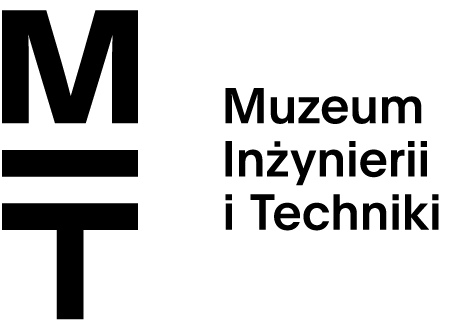Organizers
Research Group [Lab]orans
![]()
![]()
The project has been supported by a grant from the Priority Research Area Heritage under the Strategic Programme Excellence Initiative at Jagiellonian University.
![]()
Research Group [Lab]orans


The project has been supported by a grant from the Priority Research Area Heritage under the Strategic Programme Excellence Initiative at Jagiellonian University.

Paweł Brzózka, MA student at the Institute of History, Jagiellonian University.
Szymon Grygiel, doctoral candidate at the Doctoral School in the Humanities, Jagiellonian University.
Klaudia Jędrzejewska, MA student at the Institute of History, Jagiellonian University.
Sonia Knapczyk, doctoral student at the Institute of History, Jagiellonian University. She works on the social and cultural history of the 20th century and collaborates with the journal New Eastern Europe (Nowa Europa Wschodnia).
Marta Kurkowska-Budzan, professor at the Institute of History, Jagiellonian University. She studied history and sociology at the Jagiellonian University and the University of Kent at Canterbury (UK); post-doc at the Center for Advanced Holocaust Studies, Holocaust Memorial Museum in Washington, D.C. and at the E.M. Remarque Institute for European Studies, New York University (collaborating with Tony Judt). Her current research interests
include contemporary representations of the past in museology and popular culture, historical methods (particularly oral history), and the cultural history of labour in Eastern Europe in the 20th century. She is the author of History of Ordinary People. Contemporary English Historiography of Social History (2003), Anti-Communist Armed Underground in the Białystok Region. An Analysis of the Contemporary Symbolisation of the Past (2009), Stadium on the Periphery (2016) (co-authored with M. Stasiak).
Katarzyna Maniak, is an adjunct professor at the Institute of Ethnology and Culture Anthropology, Jagiellonian University in Kraków. She has published numerous articles andedited the book Culture Dictionary (2016). Currently, she is involved in a project focused on post-conflict heritage in regions incorporated into Poland after World War II. In her field of interest are anthropology of labor, forms of institutionalization of culture, approaches towards
difficult heritage and social impact of heritage.
Karolina Maśnica, MA student the Institute of History, Jagiellonian University. She is interested in the social history of the 19 th and 20 th century.
Julia Mazurek, BA student the Institute of History, Jagiellonian University.
Jakub Muchowski is an adjunct professor at the Institute of History, Jagiellonian University and an assistant editor of the journal Historyka. Studies in Historical Methods. He was a visiting scholar at the Corcoran Department of History, University of Virginia. He is a member of Research Center for Memory Cultures (JU) and International Network for Theory of History. His research focuses on the theory of historical writing, intellectual history, holocaust and genocide studies, Polish memory cultures. He has authored Polityka pisarstwa historycznego (Politics of Historical Writing, 2015) and Historyka Shoah (Historics of Shoah, 2006).
Marcin Ogrodnik, MA student at the Institute of Ethnology and Cultural Anthropology, Jagiellonian University. He received the Scholarship of the Minister of Education and Science for Significant Achievements for the academic year 2020/2021 and the Halina Konopacka and Ignacy Matuszewski 100 in 100 scholarship programme funded by the Lotto Foundation and Totalizator Sportowy under the patronage of the Prime Minister Mateusz Morawiecki in 2018. Author of papers on the anthropology of memory and gender studies.
Grace Simpson, doctoral candidate at the Institute of History, Jagiellonian University. She is undertaking the Una Europa Joint Doctorate in Cultural Heritage and History as part of a co-
supervision agreement between Jagiellonian University and Complutense University of Madrid. As part of her doctoral project, she is researching the practices, representations and expressions of workers in the Polish People's Republic and Spanish State in the 1960s and 1970s. As part of an additional project, she is researching community-based practices at European mining museums. She holds a BA in History from UCL and a MA in Economy, State and Society from UCL SSEES and Jagiellonian University. Her research interests relate to industrial heritage, labour and trade union history, and the cultural history of the Cold War.
Marcin Stasiak, Assistant Professor at the Institute of History, Jagiellonian University. His research interests include the social and cultural history of Poland after 1945, in particular: disability history, oral history and histories of medicine. He has published: Stadium on the Periphery (2016, with Marta Kurkowska-Budzan) and Polio in Poland 1945-1989. A Study in Disability History (2021).
Filip Szela, MA student at the Institute of Ethnology and Cultural Anthropology, Jagiellonian University. He researches the practices undertaken in relation to forced expropriations carried
out as a result of road constructions in Poland. He is interested in the categories of agency, change and uncertainty.
Monika Widzicka, historian and ethnologist, chief cataloguer in the Museum of Engineering and Technology in Krakow, doctoral candidate of cultural studies at the SWPS University in Warsaw. She was responsible for collection management, curating temporary and permanent exhibitions, project management. She participated as a museum coordinator in projects: Work with Sounds (2013-2015, EU-programme Culture), Sounds of Changes (2017-2019, Creative
Europe), Knowledge Lab: creating – sharing – protecting (2017 – 2020, Erasmus+). Author of papers in the field of popular culture studies, sound studies and historical anthropology.
Szymon Grygiel, doctoral candidate at the Doctoral School in the Humanities, Jagiellonian University.
Klaudia Jędrzejewska, MA student at the Institute of History, Jagiellonian University.
Sonia Knapczyk, doctoral student at the Institute of History, Jagiellonian University. She works on the social and cultural history of the 20th century and collaborates with the journal New Eastern Europe (Nowa Europa Wschodnia).
Marta Kurkowska-Budzan, professor at the Institute of History, Jagiellonian University. She studied history and sociology at the Jagiellonian University and the University of Kent at Canterbury (UK); post-doc at the Center for Advanced Holocaust Studies, Holocaust Memorial Museum in Washington, D.C. and at the E.M. Remarque Institute for European Studies, New York University (collaborating with Tony Judt). Her current research interests
include contemporary representations of the past in museology and popular culture, historical methods (particularly oral history), and the cultural history of labour in Eastern Europe in the 20th century. She is the author of History of Ordinary People. Contemporary English Historiography of Social History (2003), Anti-Communist Armed Underground in the Białystok Region. An Analysis of the Contemporary Symbolisation of the Past (2009), Stadium on the Periphery (2016) (co-authored with M. Stasiak).
Katarzyna Maniak, is an adjunct professor at the Institute of Ethnology and Culture Anthropology, Jagiellonian University in Kraków. She has published numerous articles andedited the book Culture Dictionary (2016). Currently, she is involved in a project focused on post-conflict heritage in regions incorporated into Poland after World War II. In her field of interest are anthropology of labor, forms of institutionalization of culture, approaches towards
difficult heritage and social impact of heritage.
Karolina Maśnica, MA student the Institute of History, Jagiellonian University. She is interested in the social history of the 19 th and 20 th century.
Julia Mazurek, BA student the Institute of History, Jagiellonian University.
Jakub Muchowski is an adjunct professor at the Institute of History, Jagiellonian University and an assistant editor of the journal Historyka. Studies in Historical Methods. He was a visiting scholar at the Corcoran Department of History, University of Virginia. He is a member of Research Center for Memory Cultures (JU) and International Network for Theory of History. His research focuses on the theory of historical writing, intellectual history, holocaust and genocide studies, Polish memory cultures. He has authored Polityka pisarstwa historycznego (Politics of Historical Writing, 2015) and Historyka Shoah (Historics of Shoah, 2006).
Marcin Ogrodnik, MA student at the Institute of Ethnology and Cultural Anthropology, Jagiellonian University. He received the Scholarship of the Minister of Education and Science for Significant Achievements for the academic year 2020/2021 and the Halina Konopacka and Ignacy Matuszewski 100 in 100 scholarship programme funded by the Lotto Foundation and Totalizator Sportowy under the patronage of the Prime Minister Mateusz Morawiecki in 2018. Author of papers on the anthropology of memory and gender studies.
Grace Simpson, doctoral candidate at the Institute of History, Jagiellonian University. She is undertaking the Una Europa Joint Doctorate in Cultural Heritage and History as part of a co-
supervision agreement between Jagiellonian University and Complutense University of Madrid. As part of her doctoral project, she is researching the practices, representations and expressions of workers in the Polish People's Republic and Spanish State in the 1960s and 1970s. As part of an additional project, she is researching community-based practices at European mining museums. She holds a BA in History from UCL and a MA in Economy, State and Society from UCL SSEES and Jagiellonian University. Her research interests relate to industrial heritage, labour and trade union history, and the cultural history of the Cold War.
Marcin Stasiak, Assistant Professor at the Institute of History, Jagiellonian University. His research interests include the social and cultural history of Poland after 1945, in particular: disability history, oral history and histories of medicine. He has published: Stadium on the Periphery (2016, with Marta Kurkowska-Budzan) and Polio in Poland 1945-1989. A Study in Disability History (2021).
Filip Szela, MA student at the Institute of Ethnology and Cultural Anthropology, Jagiellonian University. He researches the practices undertaken in relation to forced expropriations carried
out as a result of road constructions in Poland. He is interested in the categories of agency, change and uncertainty.
Monika Widzicka, historian and ethnologist, chief cataloguer in the Museum of Engineering and Technology in Krakow, doctoral candidate of cultural studies at the SWPS University in Warsaw. She was responsible for collection management, curating temporary and permanent exhibitions, project management. She participated as a museum coordinator in projects: Work with Sounds (2013-2015, EU-programme Culture), Sounds of Changes (2017-2019, Creative
Europe), Knowledge Lab: creating – sharing – protecting (2017 – 2020, Erasmus+). Author of papers in the field of popular culture studies, sound studies and historical anthropology.